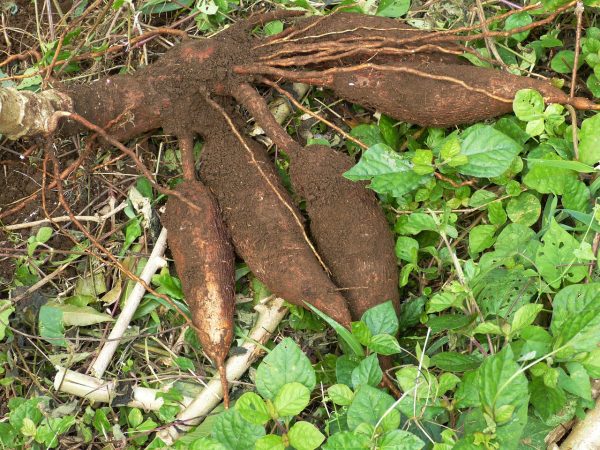Cassava is one of Nigeria’s most widely cultivated and consumed crops. The longish tuber has yielded garri, the treasured staple of Southern Nigerian cuisine, and the foundation of our swallow feasts. Our long lasting national attachment to cassava has also generated wealth for many along the value chain that has developed around its production.
It’s probably not a big surprise then, that Nigeria sits proudly atop the global cassava cultivation chain. The country puts out an impressive 47 million tons of the tuber per year from its farms. This fact becomes more significant when we realize that the next three biggest producers aren’t actually African countries; Thailand, which occupies second place, ecks out more than 30 million tons annually. Indonesia and Brazil make up the top four, with Congo DR chipping in enough to take fifth spot. These five countries account for nearly 70% of global cassava production.
A Slightly Surprising History
The wide variety of countries involved in cassava production becomes more understandable in the light of the crop’s history. Nigerians like to think of cassava as a part of our cultural heritage. But the facts don’t entirely support this nativistic view of the plant.
It turns out that cassava was introduced to us by Portuguese explorers, who brought it over from South America in the 16th century. It became quite popular in the early days of the colonial era, when Nigerians who had been formerly enslaved elsewhere in the world returned home, bringing cassava processing techniques along with them.
More than a century later, Nigeria now leads the world in the cultivation of a crop that hasn’t always grown on its soil. We’ve received it so well, it’s become a part of our identity. The country has owned it, and has built a giant sub-sector out of it.
Why Cassava Works As A Staple Crop
Cassava thrives in a wide range of conditions, fitting in rather well with the climate and soil types found in much of Nigeria. As a result, it’s grown in about 24 of the country’s 36 states. Southern states such as Anambra, Delta, Edo, Benue, Oyo and Cross River dominate cassava production in Nigeria.
The fact that cassava can also be grown all year round works in its favour. This makes it a ready food reserve in times of famine-related food scarcity.
Perhaps our propensity for consuming high starch foods also attracts us to cassava. It does lend itself to processing into various consumable forms as well. Whole cultures have actually managed to assign fixed roles in cassava processing to members of households. More modern processing centres are, in any case, slowly taking over these traditional functions.
Its Uses
The most obvious use of cassava are in the making of cassava flour or garri, and fufu. There’s also the abacha (‘African salad’) of South Eastern Nigeria, which is essentially shredded cassava prepared with a host of other ingredients. And if you live in the south of the country, there’s a high chance that the bread you consume is made of material from cassava.
Cassava is also a source of the biofuel Ethanol, as it is for laundry starch and modified starch used in pharmaceutical products.
Cassava’s Business Opportunities
Although Nigeria grows more cassava than any other country on the planet, it still consumes most of what it produces. There are opportunities for businesspeople who are willing to export it.
There’s a big demand for cassava in Europe and North America. At the moment, Thailand provides most of the it to these regions, and is the leader in the global trade of the product. Nigeria can have a slice of this market too, if it’s able to ramp up its output to levels that allow it to sell more beyond its borders.


